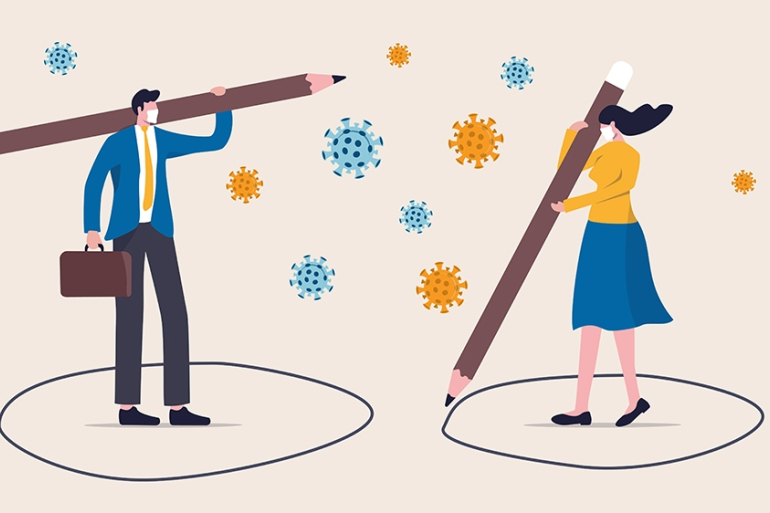While Covid-19 came about unexpectedly, we had high possibilities of it ending in a few weeks and having everything go about normally as it used to be. We anticipated to have a Covid-19 free 20201 and have our lives back to fully normal, it has stayed and so is the stigma around it. The pandemic has been quite detrimental as well and patients and victims have constantly gone through the stigma from society.
At the onset of the pandemic, we had international bodies set up some standards of how well we can manage the pandemic. Among the measures that were introduced, social distancing and isolation of patients were well recognized to slow down the spread of the virus as interactions reduce.
Governments around the world also introduced total lockdowns to reduce the spread curve among their citizens which have been quite effective. For instance, Last year, Uganda introduced a 14-day total lockdown which reduced the spread curve.
A similar study published by Reuters also indicates that there was a decline in Covid-19 cases after the lockdowns although there was no significant decline in the prevalence and mortality. It further notes, by bringing infections under control, lockdowns may pave the way to a faster economic recovery as it brings back the confidence in people to resume normal operations.
However, the lockdowns and isolations have also contributed to the stigma around the disease. Anyone with a history of Covid-19 or someone in the family with covid-19 is subject to stigmatization regardless of their current status.
This stigma leads to depression and severe trauma to the patients. They are isolated from the rest of the world in the fear that they may spread the virus to others and do not even inform their friends or family in the fear of being stigmatized.
Ignorance and our discriminative nature have made us not realize that the patients recover and can go back to being resourceful members of society. This cause was also much driven by the handling of Covid-19 deaths by the government officials which brought trauma and fear to the affected.
As human beings, we’re created to be social beings and always want to be in the company of others. However, Covid-19 has not made it possible because of the directives to keep social distancing and even stay home as much as possible to avoid the spread of the virus.
Thanks to Covid-19 there are now ways in which people can communicate virtually such as through zoom calls/meetings which can be used to check on the well-being of the patients. At one time, we shall not only overcome the pandemic but also go back to how we used to be with just a few lifestyle adjustments.


